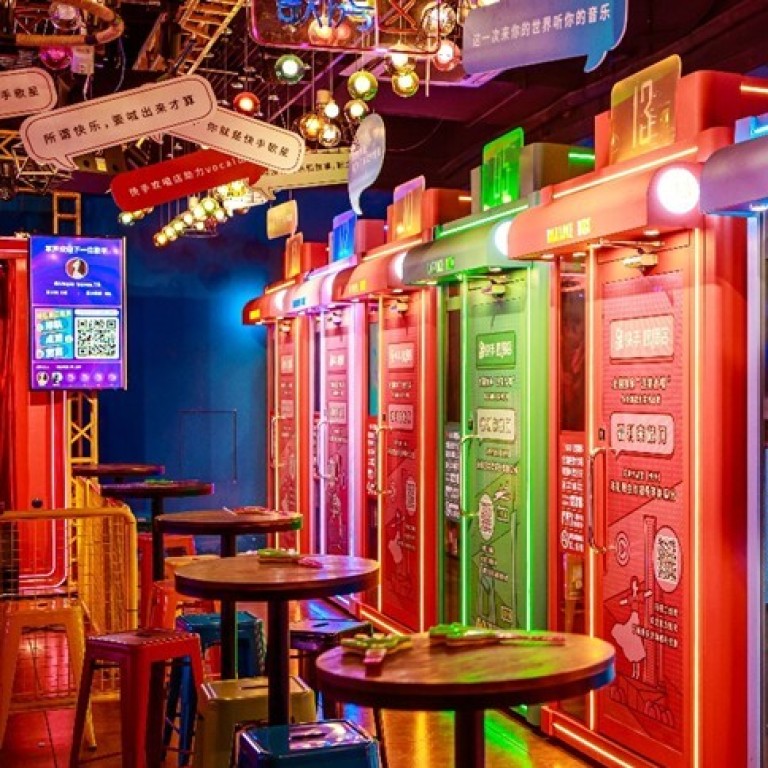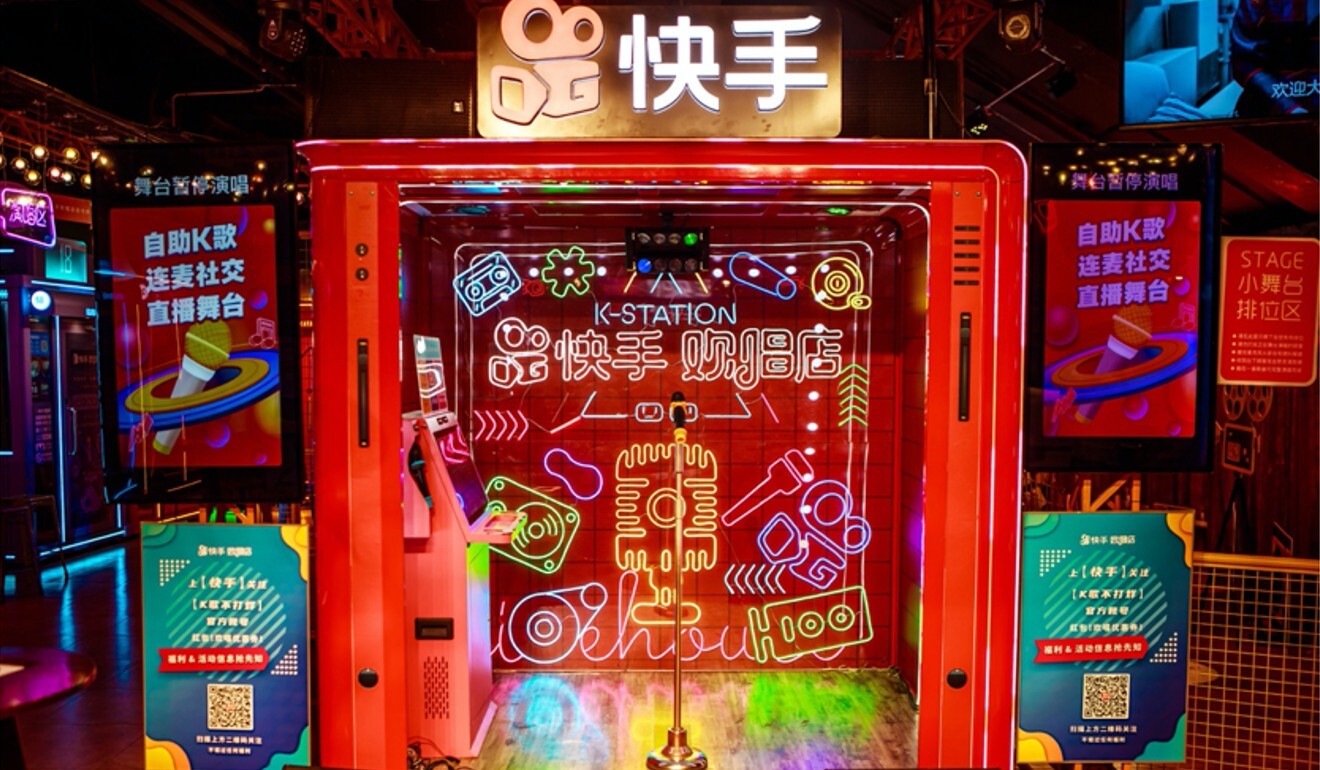
ByteDance rival Kuaishou launches its first offline venture: a karaoke lounge
- The offline KTV industry, along with cinemas, concert halls and other collective activities, have been hit hard by the Covid-19 pandemic
- The Kuaishou initiative is part of a strategy to ‘make the use of its brand and online traffic to help promote KTV partners’
Kuaishou Technology, operator of the Tencent-backed Kuaishou short video app, has opened its first offline business: a karaoke lounge.
The 200-square-metre K-Station, located in a busy commercial district of Guangzhou, made a soft opening last Friday and plans to officially launch during the summer school holiday, according to a Kuaishou representative.
Customers can sing on a public stage or entertain themselves in a soundproof cubicle equipped with a screen, microphones and earphones. Singers using the private room can also sync their activity with the Kuaishou app, uploading a video of their performance along with stickers and filters.

The company “is preparing to launch [the KTV service] in other Chinese cities,” Kuaishou said in a written response to the Post.
China’s offline KTV industry, along with cinemas, concert halls and other collective activities, have been hit hard by the Covid-19 pandemic which has required social distancing to help prevent the spread of the disease. In cities like Beijing, karaoke lounges have been closed at the government's request.
Kuaishou to invest 3 billion yuan in Chengdu to build live-streaming headquarters
In May the Guangzhou government said it would “gradually allow” the opening of closed-door recreational spaces if sufficient pandemic prevention measures were implemented.
The Kuaishou initiative is a partnership with KTV operators and is part of a strategy to “make the use of its brand and online traffic to help promote KTV partners, increase their income and resume businesses,” the representative said.

04:43
Viral Indian TikTok star says followers ‘can’t stop crying’ due to Indian government ban
Karaoke, which originated in Japan, allows amateur singers to gather in a lounge and croon along with the instrumental version of a song using a microphone. Lyrics are usually displayed on a video screen.
In recent years, internet innovators have brought the entertainment online. WeSing, a Tencent product, and Changba, backed by Citic Private Equity and Sequoia Capital China, are two companies that have made the recreation digital, free and available for individuals to use at home.
They then took advantage of the online-to-offline trend to build self-service karaoke cubicles in shopping malls and other busy areas. Passers-by can simply “scan” in via the app and use the microphone for a period of time.
The market for this so-called mini karaoke reached 14 billion yuan (US$2 billion) in 2019, with roughly 84,000 cubicles available across China, reaching 200,000 cubicles by 2022 with a market size of 31 billion yuan, according to Shenzhen-based Qianzhan Industry Research Institute.

